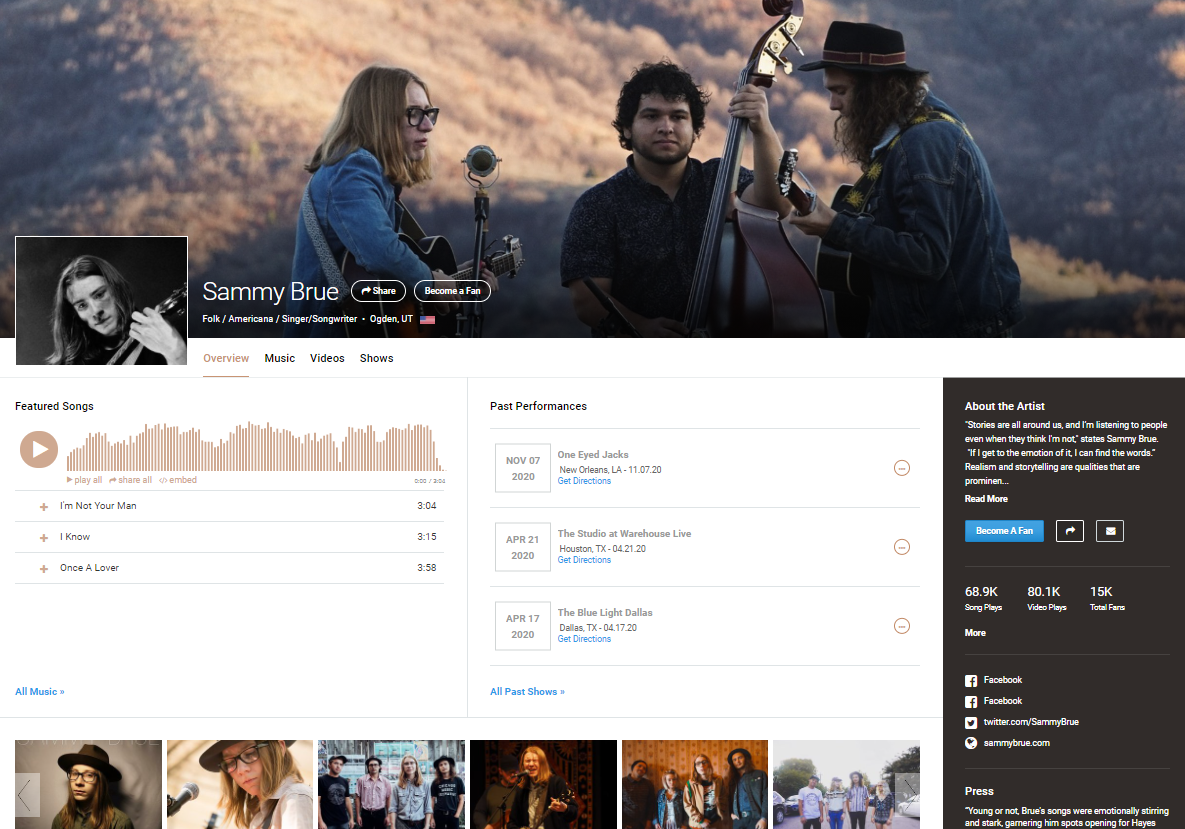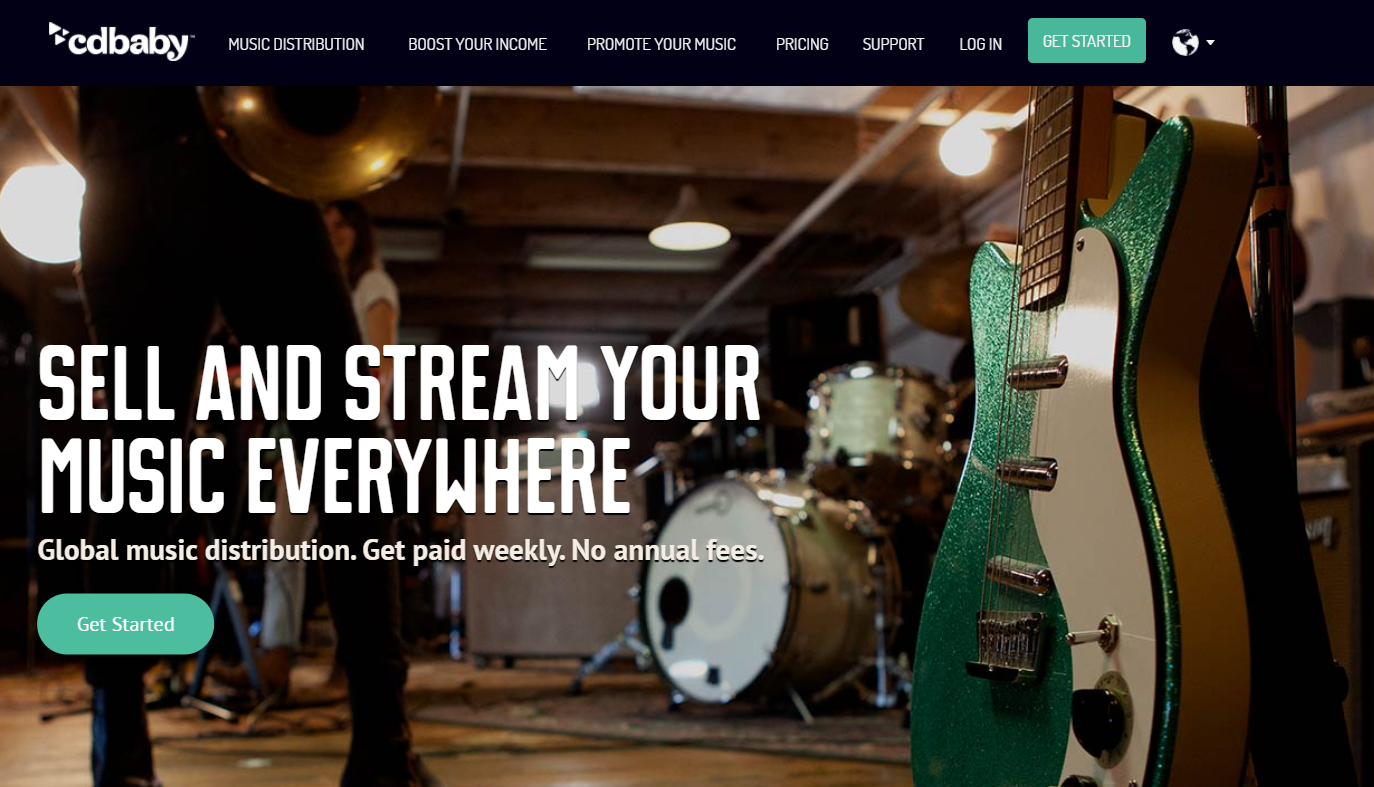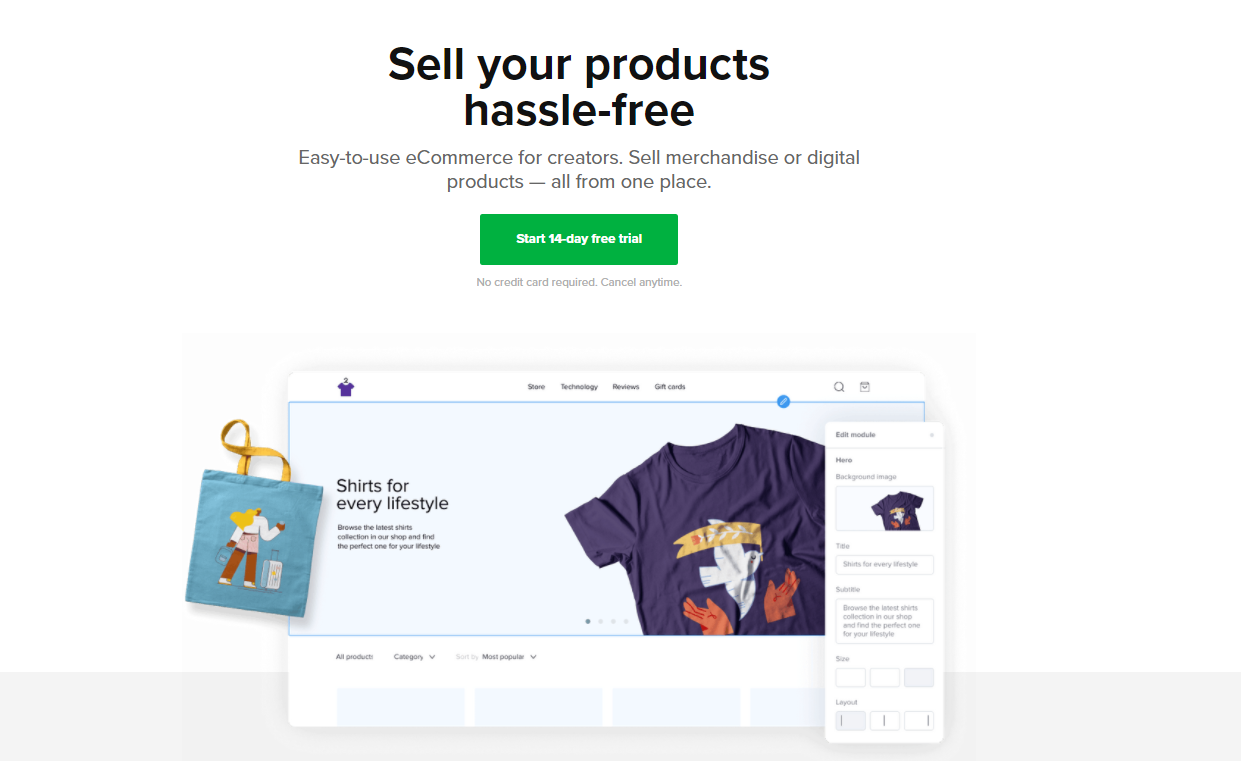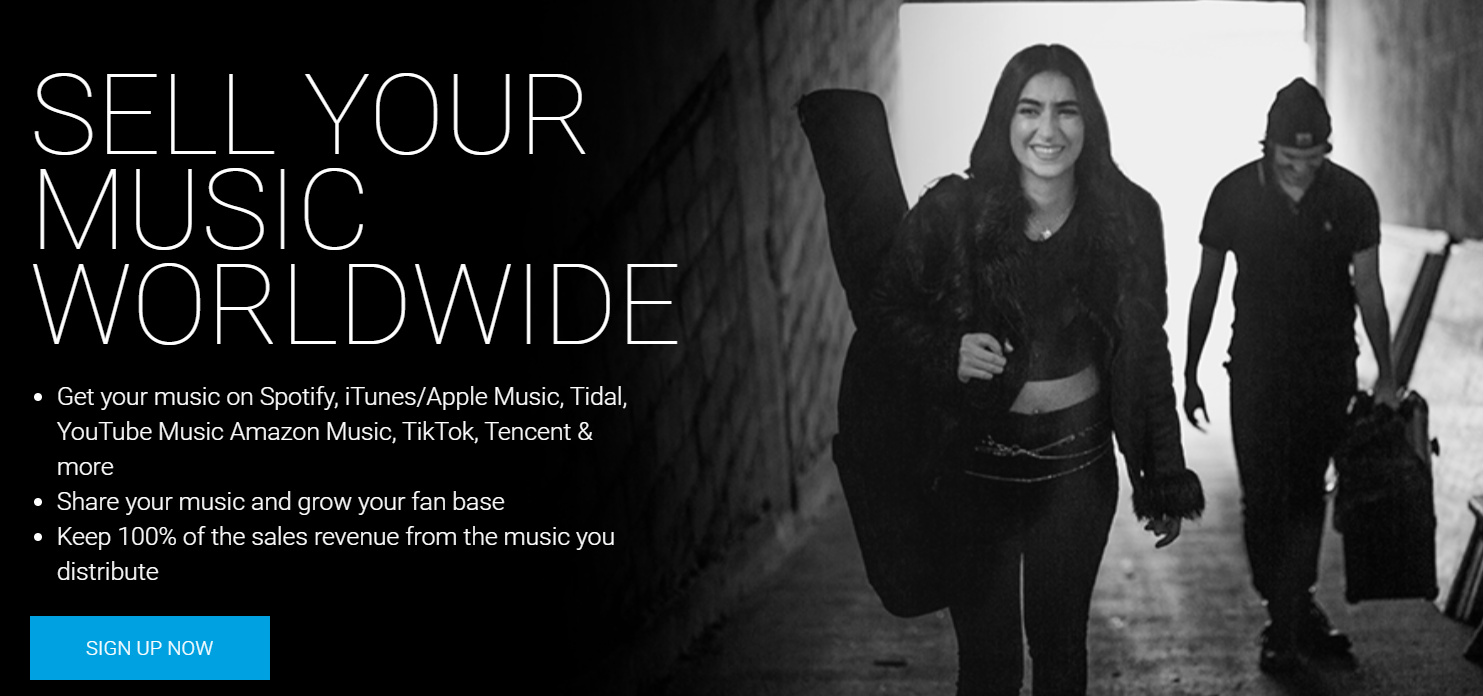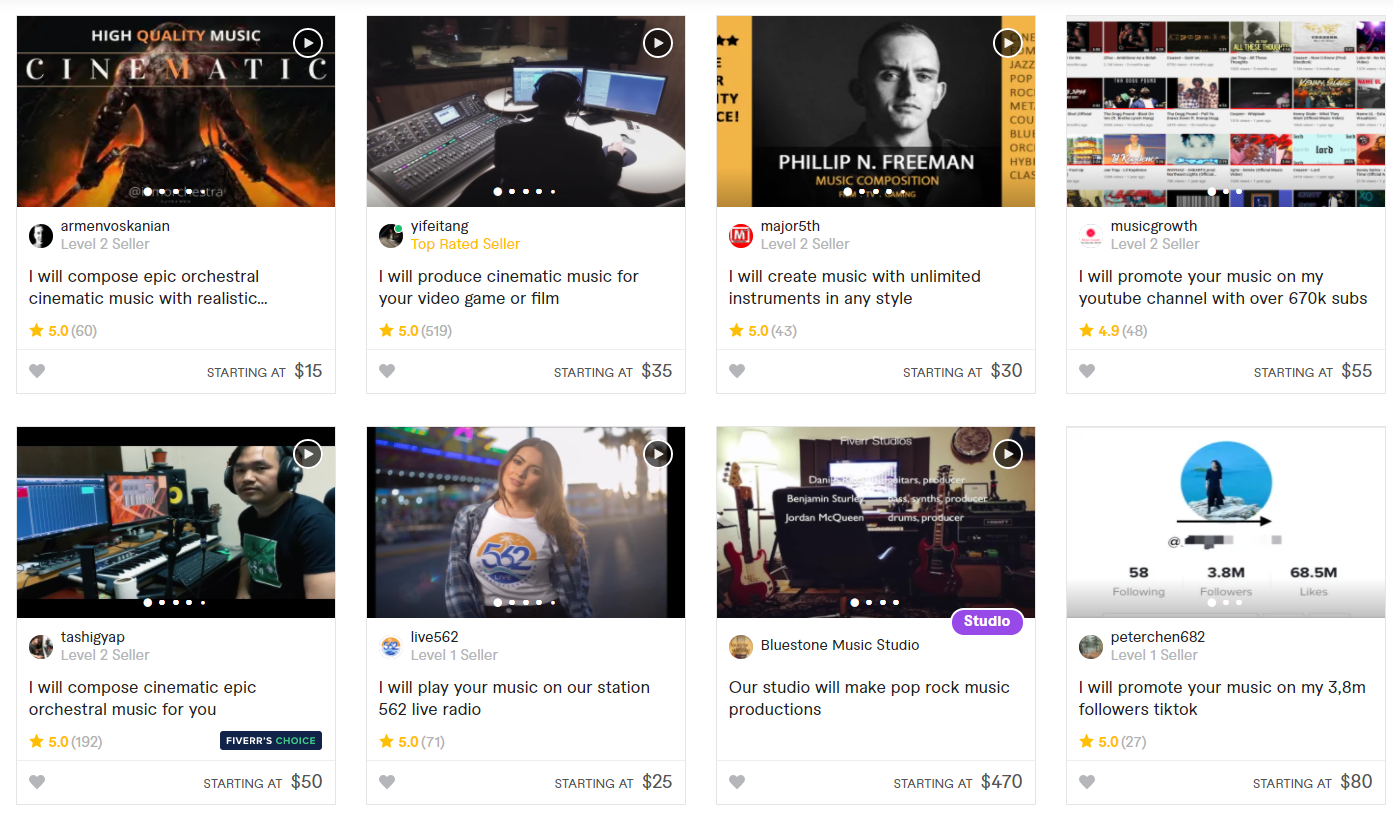If you're a budding musician who is just starting out, you probably don't have a manager, a label, or a distributor. It's fine—you'll get there.
In the meantime, why not sell your music online without any help? Who needs an agent anyway...
1. Bandcamp
If you are looking for a platform to sell your music and your merch, have a look at Bandcamp.
You can set your price for any of your work, then Bandcamp takes 15 percent of the total fees for digital sales and 10 percent of merch sales. The digital fee drops to 10 percent once you've reached $5,000 in revenue.
All the money from sales goes directly to you. So, when someone pays $10 for your album, all the money goes to your PayPal account and you owe Bandcamp $1.50 for the 15 percent cut.
However, Bandcamp doesn't need the money right there and then. Instead, Bandcamp only takes money when a sale comes along that's less or equal to the balance you owe. For example, if the amount you owe is $10, the next $10 sale goes to Bandcamp, and then you're back in the black.
2. ReverbNation
ReverbNation is no longer a mere storefront for your band. With a range of membership options, it can either be a shop, a distribution platform, or even a booking tool for landing yourself gigs.
Any band or singer can make an artist page on the platform for free. A free profile allows you to upload songs, videos, and photos. It also lets you sell your music directly from your profile page, access the gig finder, and run email and social media marketing campaigns.
The basic plan ($13/month) adds industry opportunities, press kit creation, and support for large song uploads. Meanwhile, the premium $20/month package adds digital distribution and music publishing admin tools.
Digital distribution lets you get your music on iTunes, Spotify, Amazon, Apple Music, and more, and is thus essential for many new bands.
3. CD Baby
CD Baby retired its music store in March 2020 so it could focus entirely on helping artists distribute their content.
You can use the portal to upload tracks to more than 150 streaming services. That includes all the big names like Spotify, TIDAL, and Apple Music, as well as dozens of smaller and more niche apps. CD Baby also claims to be able to get your music in physical music stores around the world, but information about the process is a little thin.
Other features of the service include access to Show.co (a major marketing tool in the music world), collection of worldwide publishing royalties, direct song registration with global royalty collection societies, and weekly payments on your revenues.
Lastly, CD Baby is great for bands that want to create their own professional CDs and vinyl records to sell at gigs, as you can use the service to order physical CDs.
4. Sellfy
Sellfy is one of the leading e-commerce sites for creators. It lets you sell any type of downloadable digital product (including music), as well as your associated merch.
The service lets you build your own online storefront, or even embed your store on your band's existing website.
Most impressively, however, Sellfy lets you turn SoundCloud into an online store for your band. Just upload the tracks you want to sell onto the Sellfy backend, then add the URL to the corresponding track on your SoundCloud account.
Sellfy is a subscription-based service. The entry-level plan, which will be fine for almost all users, costs $19/month.
5. TuneCore
TuneCore is another online distributor. Indeed, it is arguably the biggest competition for CD Baby.
The process works in a similar way. You just need to upload your music to the TuneCore portal and it will be sent to iTunes, Amazon, Spotify, YouTube Music, and more than 150 other smaller services and stores. In total, you can use TuneCore to get your music into more than 100 countries.
TuneCore offers either an ad-hoc or subscription-based payment model. To publish a one-off single, it costs $10 per year. On the other hand, an album costs $30 per year. The upside of the subscription model is that you keep 100 percent of your streaming revenues and royalties—TuneCore does not take a cut.
6. Ditto Music
Ditto Music lets you promote and monetize your music online across all the major streaming services and music stores. If you only want to distribute a single artist or band, a one-year membership plan costs $19/year. Ditto will not keep any of your royalties.
You will get free ISRC and UPC codes for every track you release and can withdraw all your earnings directly to your bank account.
Other features include smart links, pre-save links to use before the release date, and registration for eligibility for major global music charts, such as the UK Top 40 and American Billboard.
You will even get registration on VEVO, allowing you to start earning royalties from the world’s biggest music video site.
7. Fiverr
Don't forget that there is an entire subset of the music-selling industry that caters to making music on demand for clients. For example, perhaps they want a new jingle for their latest TV ad or a background sound for an event.
Even if you are a regular band, you can still take those types of gigs—especially in the early days when money might be tight.
Fiverr is one of the most well-known freelance sites, and there are plenty of potential clients on there who are looking for musicians.
What About iTunes and Amazon?
Amazon does not accept musicians without a distributor, so you will have to go with a service like CD Baby that will handle everything for you. Officially, Amazon says it supports seven distributors: CD Baby, Rebeat, Ingrooves, Redeye, The Orchard, TuneCore, and Virtual Label.
iTunes allows you to do everything on your own, but you need at least 20 albums in your catalog. Unless you have been recording for years, you might still be forced to use a distributor.
Don't Forget to Create Your Own Site
It doesn't matter how well-known your band is, you should always have your own website. That way, you can sell music to fans without the need for any middlemen or subscription fees. If you're not sure where to start, it doesn't hurt to consult a web developer.



